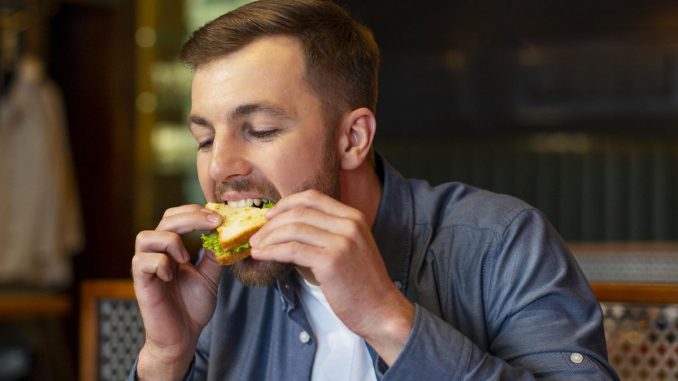
Recovering from any major surgery isn’t easy. Depending on what operation you’ve had, it can take anywhere from a few days to several months, or even a year to feel like yourself again. You’ll often need to rest, take prescribed medication and sometimes follow a certain diet. Failing to adhere to the doctor’s orders can set you back and possibly lead to serious post-op complications.
One woman who underwent surgery on her stomach and intestines, was given strict instructions on what she could and couldn’t eat during recovery. To make life easier, the woman prepped and froze her meals before going to hospital. To her horror, her husband helped himself to all her special meals. The woman is livid. She’s considering leaving her husband but is worried she might be overreacting.
The woman had prepared separate meals for her family so she didn’t have to cook for anyone after undergoing surgery
Image credits: Freepik (not the actual photo)
Her husband ate some of his meals, then decided to finish all of the woman’s “special diet” post-op meals too
Image credits: Freepik (not the actual photo)
Image credits: drobotdean / Freepik (not the actual photo)
Image credits: LightFieldStudios / Envato Elements (not the actual photo)
Image credits: TheDingoAteMyJawa
Following a proper post-surgery diet helps your body recover faster and promotes wound healing
A patient sometimes won’t be allowed to eat at all immediately after a gastrointestinal operation. And could be put on a liquid diet once their body is ready. A clear fluid or liquid diet only allows someone to ingest stuff that’s easy for their body to break down. It’ll leave little or no food in your gastrointestinal (GI) tract.
This type of diet includes clear liquids and a few liquids with color. Drinks like water, certain fruit juices, black tea and coffee, and sports drinks are allowed. Other things like Jell-O, sherbert, popsicles, honey, and clear soup are also okay. But it depends on what your doctor has advised.
A full fluid diet is similar to a clear fluid diet. But you can also have things like milk, yogurt, puddings, milkshakes, strained creamy soups, warm cereals and nutritional supplements like “Ensure” or “Boost”. In the case of the woman, she was on a full fluid plan for the first two weeks.
Once your body can manage a fluid diet, your doctor will slowly move you onto solids, but you’ll still have to watch what you eat
You’d likely start with a “Light Diet”. It includes small portions of low fiber, soft foods that should help your intestines recover while they get used to digesting food again. Some of the food allowed includes certain fruit and vegetables, plain fish and chicken, eggs, pasta and rice.
It’s normally advised to keep meals small and frequent. And to drink lots of fluids. You’d have to introduce foods gradually during this phase. And at some point, you should be ready to go back to normal meals if your doctor gives the green light.
The woman’s diet was particularly complicated because of her added health problems
The woman said she has Celiac disease. According to John Hopkins Medicine, it’s “a chronic digestive problem that hurts your small intestine. It stops your body from taking in nutrients from food.” So even before surgery, the woman would have had to stick to a strict diet. This includes cutting out gluten. So things like wheat, rye and barley.
Eating gluten would cause the woman’s immune system to attack her small intestine. The immune reaction causes inflammation that damages the intestine’s lining. According to Mayo Clinic, “the intestinal damage often causes symptoms such as diarrhea, fatigue, weight loss, bloating or anemia”. Over time, the damage can lead to medical complications. And in certain cases, surgery might be required to treat the complications.
The woman explained why she’d had surgery in an updated post
“The surgery I had was removal of benign tumors I had in my stomach and part of my intestine,” she wrote. “They had to remove three quarters of my stomach and part of my small intestine. They got all of the tumors and are optimistic they won’t return. I’ll have to be very aware of my nutrition for the rest of my life as I will have malabsorption issues.” She also clarified that the surgery was done laparoscopically, adding that it was less painful than “an open procedure”.
The woman explained that the food her husband “stole” was for the next stage of her diet. And included things like egg salad, tender cooked chicken, vegetarian/chicken chili and soft seafood. “Definitely more tasty than the liquid diet I was on,” she wrote. “So maybe that’s why my husband ate them, idk. I’m still not clear on why he did what he did.”
People were quick to take the woman’s side, with some saying the husband deliberately set out to “punish” her
The post Man Eats Wife’s Post-Surgery Food, Calls Her A “Baby” When She Confronts Him first appeared on Bored Panda.
